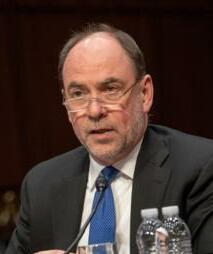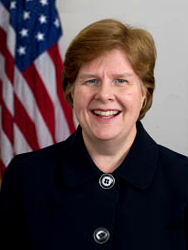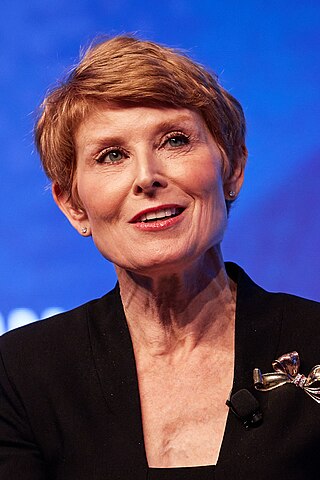Supply-side economics is a macroeconomic theory postulating that economic growth can be most effectively fostered by lowering taxes, decreasing regulation, and allowing free trade. According to supply-side economics theory, consumers will benefit from greater supply of goods and services at lower prices, and employment will increase. Supply-side fiscal policies are designed to increase aggregate supply, as opposed to aggregate demand, thereby expanding output and employment while lowering prices. Such policies are of several general varieties:
- Investments in human capital, such as education, healthcare, and encouraging the transfer of technologies and business processes, to improve productivity. Encouraging globalized free trade via containerization is a major recent example.
- Tax reduction, to provide incentives to work, invest and take risks. Lowering income tax rates and eliminating or lowering tariffs are examples of such policies.
- Investments in new capital equipment and research and development (R&D), to further improve productivity. Allowing businesses to depreciate capital equipment more rapidly gives them an immediate financial incentive to invest in such equipment.
- Reduction in government regulations, to encourage business formation and expansion.

Arthur Betz Laffer is an American economist and author who first gained prominence during the Reagan administration as a member of Reagan's Economic Policy Advisory Board (1981–1989). Laffer is best known for the Laffer curve, an illustration of the theory that there exists some tax rate between 0% and 100% that will result in maximum tax revenue for government. In certain circumstances, this would allow governments to cut taxes, and simultaneously increase revenue and economic growth.

Alice Mitchell Rivlin was an American economist and budget official. She served as the 16th vice chair of the Federal Reserve from 1996 to 1999. Before her appointment to the Federal Reserve, Rivlin was named director of the Office of Management and Budget in the Clinton administration from 1994 to 1996. Prior to that, she was instrumental in the establishment of the Congressional Budget Office and became its founding director from 1975 to 1983. A member of the Democratic Party, Rivlin was the first woman to hold either of those posts.
The Concord Coalition is a political advocacy group in the United States, formed in 1992. A bipartisan organization, it was founded by U.S. Senator Warren Rudman, former Secretary of Commerce Peter George Peterson, and U.S. Senator Paul Tsongas. The Concord Coalition's advocacy centers on ending deficit spending and promoting a balanced budget in the U.S. federal government. The group's mission statement is to educate "the public about the causes and consequences of federal budget deficits, the long-term challenges facing America's unsustainable entitlement programs, and how to build a sound foundation for economic growth."

Jason Furman is an American economist and professor at Harvard University's John F. Kennedy School of Government and a nonresident senior fellow at the Peterson Institute for International Economics. On June 10, 2013, Furman was named by President Barack Obama as chair of the Council of Economic Advisers (CEA). Furman has also served as the deputy director of the U.S. National Economic Council, which followed his role as an advisor for the Barack Obama 2008 presidential campaign.
Carlos E. Bonilla was an American lobbyist, an advisor on economic policy to U.S. president George W. Bush, and senior vice president at The Washington Group, a lobbying firm.

Douglas James Holtz-Eakin is an American economist. He was formerly an economics professor at Syracuse University, director of the Congressional Budget Office, and chief economic policy adviser to Senator John McCain's 2008 presidential campaign. Holtz-Eakin is currently president of the American Action Forum policy institute, a conservative think tank.

Christina Duckworth Romer is the Class of 1957 Garff B. Wilson Professor of Economics at the University of California, Berkeley and a former chair of the Council of Economic Advisers in the Obama administration. She resigned from her role on the Council of Economic Advisers on September 3, 2010.
The Hamilton Project is an economic policy initiative within the Brookings Institution. It was originally launched in April 2006 by a combination of public policy makers, business people, academic leaders, and other former Clinton administration economists and experts. The Hamilton Project "seeks to advance America’s promise of opportunity, prosperity, and growth." It went dormant after U.S. President Barack Obama assumed office in 2009, because many of its members left to work for the White House, but in 2010, it was relaunched with Michael Greenstone as the new director.

Lawrence Alan Kudlow is an American conservative broadcast news analyst, economist, columnist, journalist, political commentator, and radio personality. He is a financial news commentator for Fox Business and served as the Director of the National Economic Council during the Trump Administration from 2018 to 2021. He assumed that role after his previous employment as a CNBC television financial news host. By 2024 Kudlow was the vice chair of the board of the America First Policy Institute, a nonprofit think tank developing policies for the second Trump presidency.
The National Association for Business Economics (NABE) is the largest international association of applied economists, strategists, academics, and policy-makers committed to the application of economics. Founded in 1959, it is one of the member organizations of the Allied Social Science Associations. According to the association's website, "NABE's mission is to provide leadership in the use and understanding of economics.".

Douglas William Elmendorf is an American economist who is the dean and Don K. Price Professor of Public Policy at the John F. Kennedy School of Government. He previously served as the Director of the Congressional Budget Office (CBO) from 2009 to 2015. He was a Brookings Institution senior fellow from 2007 to 2009, and briefly in 2015 following his time at the CBO, and was a director of the Hamilton Project at Brookings.
Donald Baird Marron Jr. is an American economist, professor and policy advisor and director of the nonpartisan Urban-Brookings Tax Policy Center in Washington, D.C. He is the son of the economist and financier Donald B. Marron Sr.

Arvind Subramanian is an Indian economist and the former Chief Economic Advisor to the Government of India, having served from 16 October 2014 to 20 June 2018. Subramanian is currently a Senior Fellow at the Watson Institute for International and Public Affairs at Brown University. He previously served as Professor of Economics at Ashoka University and a Senior Fellow at the Peterson Institute for International Economics and Center for Global Development.

Betsey Ayer Stevenson is an economist and Professor of Economics and Public Policy at the University of Michigan Gerald R. Ford School of Public Policy. Additionally, she is a fellow of the Ifo Institute for Economic Research in Munich, a research associate at the National Bureau of Economic Research and servers on the board of the American Economic Association. The Obama Administration announced her appointment as a Member of the Council of Economic Advisers, a post she served from 2013 through 2015. She previously served as Chief Economist of the U.S. Department of Labor under Secretary Hilda Solis from 2010 to 2011. Previously, she was an assistant professor of Business and Public Policy, at the Wharton School of the University of Pennsylvania.

Stephanie A Kelton is an American heterodox economist and academic, and a leading proponent of modern monetary theory. She served as an advisor to Bernie Sanders's 2016 presidential campaign and worked for the Senate Budget Committee under his chairmanship. She is also the author of The Deficit Myth, a New York Times bestseller, on the subject of modern monetary theory.

Benjamin H. Harris is an American economist who is currently the Vice President and Director of the Economic Studies program at the Brookings Institution. Throughout his career, he has served in several public-service positions, most notably as the chief economist and chief economic advisor to Vice President Joe Biden from 2014 until the end of the Obama administration, and as Assistant Secretary for Economic Policy and Chief Economist of the U.S. Treasury. Harris was the executive director of the Kellogg Public-Private Initiative at the Kellogg School of Management at Northwestern University, the Chief Economist to the evidence-based policy organization Results for America, and the founder of the economic policy consulting firm Cherrydale Strategies.

Claudia Rae Sahm is an American economist, currently serving as Chief Economist for New Century Advisors. She is also the founder of Sahm Consulting. Claudia was formerly director of macroeconomic policy at the Washington Center for Equitable Growth, and a Section Chief at the Board of Governors of the Federal Reserve System, where she worked in various capacities from 2007 to 2019. Sahm specializes in macroeconomics and household finance. She is best known for the development of the Sahm rule, a Federal Reserve Economic Data (FRED) indicator for identifying recessions in real-time.

Diane C. Swonk is an American economic advisor and chief economist at KPMG US.
Saul Eslake is an Australian economist, commentator, and public speaker. "He has a knack for explaining economics in terms mere mortals can understand, which is why he's always in such high demand as a speaker and commentator." He is the principal of Corinna Economic Advisory, and previously was the Chief Economist at the Australia & New Zealand Banking Group between 1995 and 2009, and the Chief Economist for Bank of America Merrill Lynch between 2011 and 2015. He has been a Vice Chancellor's Fellow at the University of Tasmania since 2016.












